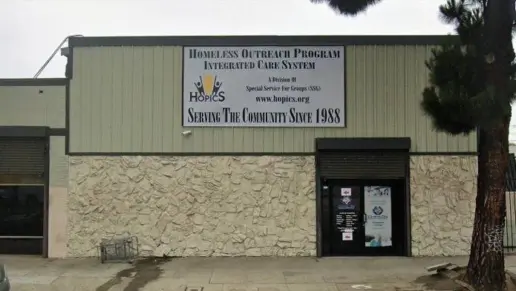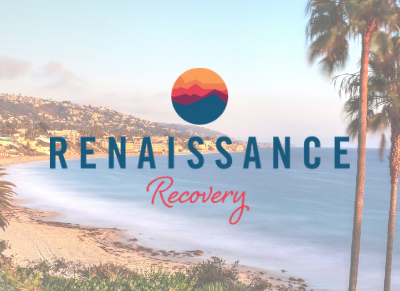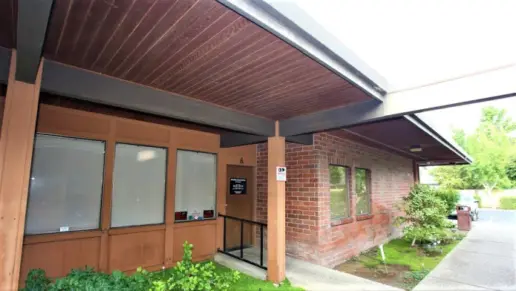About Triumph Recovery
Triumph Recovery is an inpatient detox and residential drug facility in Los Angeles, California. Here, they treat depression, anxiety, PTSD, trauma alongside chemical dependency in men over 18 who are ambulatory, independent and speak English.
Aftercare includes extended care, sober living, intensive outpatient programs, and referrals to clinicians for more support.
Detox and Residential Treatment in LA
Triumph offers drug detox through a third-party team of detox specialists. After a client has been successfully stabilized, they will enter residential treatment.
Triumph’s program uses the social model for addiction recovery. Clients remain in the program for at least 30 days.
The facility is staffed 24/7 including the administrative and admissions offices. Clients can take part in individual and group sessions, 12-step programs, physical fitness, education and lectures, and courses that address underlying mental health concerns including co-occurring disorders.
Family Education and Support Groups for Californians
One of the focuses at this residential facility is the family unit. They know addiction treatment needs to involve a family component.
They offer many family tools to help relatives support their loved one during and after treatment. I like that they also focus on support for themselves as they deal with the ripple effects of their loved one’s addiction.
Education about addiction treatment and aftercare is offered to family members. They also run lectures on topics such as codependency, family of origin, communication, boundaries and the family model.
Rehab Score
Gallery
Other Forms of Payment
Self-pay involves paying for treatment out of your own pocket. You can use savings or credit, get a personal loan, or receive help from family and friends to fund your treatment. If you don't have insurance or your insurance plan doesn't cover a specific program, self-pay can help ensure you still get the care you need.
Private insurance refers to any kind of healthcare coverage that isn't from the state or federal government. This includes individual and family plans offered by an employer or purchased from the Insurance Marketplace. Every plan will have different requirements and out of pocket costs so be sure to get the full details before you start treatment.
Addiction Treatments
Levels of Care
 Inpatient
Inpatient
 Medically Assisted Detox
Medically Assisted Detox
 Aftercare Support
Aftercare Support
 12-Step
12-Step
Treatments
The goal of treatment for alcoholism is abstinence. Those with poor social support, poor motivation, or psychiatric disorders tend to relapse within a few years of treatment. For these people, success is measured by longer periods of abstinence, reduced use of alcohol, better health, and improved social functioning. Recovery and Maintenance are usually based on 12 step programs and AA meetings.
Drug rehab in California teaches participants constructive ways to stay clean and sober. Treatment revolves around helping individuals stop using the substance they are addicted to and learn healthy habits to avoid relapse.
A combined mental health and substance abuse rehab has the staff and resources available to handle individuals with both mental health and substance abuse issues. It can be challenging to determine where a specific symptom stems from (a mental health issue or an issue related to substance abuse), so mental health and substance abuse professionals are helpful in detangling symptoms and keeping treatment on track.
Clinical Services
Group therapy is any therapeutic work that happens in a group (not one-on-one). There are a number of different group therapy modalities, including support groups, experiential therapy, psycho-education, and more. Group therapy involves treatment as well as processing interaction between group members.
In individual therapy, a patient meets one-on-one with a trained psychologist or counselor. Therapy is a pivotal part of effective substance abuse treatment, as it often covers root causes of addiction, including challenges faced by the patient in their social, family, and work/school life.
Trauma therapy addresses traumatic incidents from a client's past that are likely affecting their present-day experience. Trauma is often one of the primary triggers and potential causes of addiction, and can stem from child sexual abuse, domestic violence, having a parent with a mental illness, losing one or both parents at a young age, teenage or adult sexual assault, or any number of other factors. The purpose of trauma therapy is to allow a patient to process trauma and move through and past it, with the help of trained and compassionate mental health professionals.
Accreditations

The Joint Commission, formerly known as JCAHO, is a nonprofit organization that accredits rehab organizations and programs. Founded in 1951, the Joint Commision's mission is to improve the quality of patient care and demonstrating the quality of patient care.
Joint Commission Accreditation: Yes

LegitScript has reviewed Triumph Recovery as part of their certification program, and has determined that it meets the LegitScript standards for legality, safety and transparency.
LegitScript verified in January 2021
Contact Information
13252 W Magnolia Blvd
Los Angeles, CA 91423


